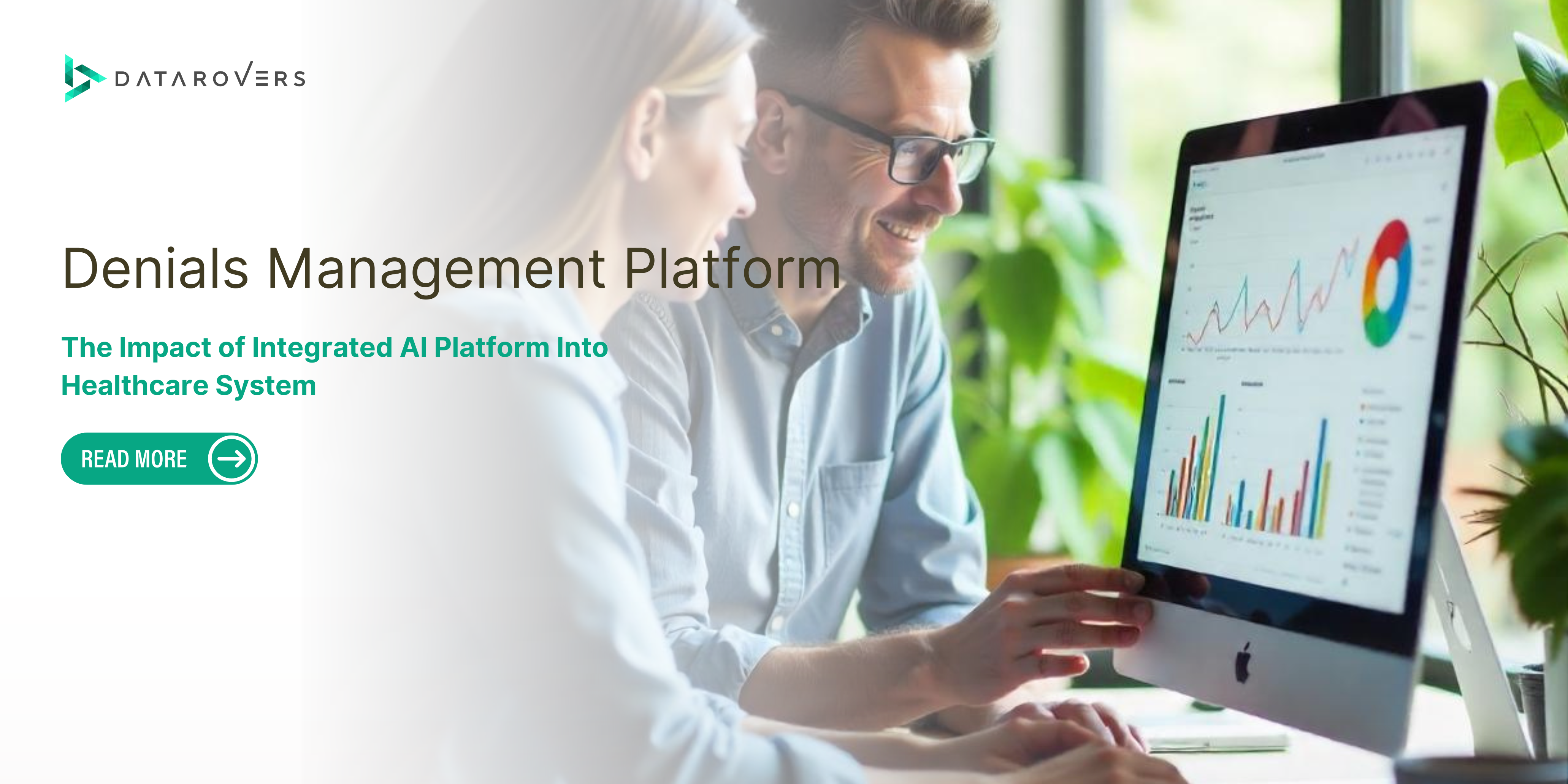Introduction
The important aspect and the aim of healthcare organizations should be to deliver excellent patient care. Nevertheless, hospitals are facing challenges with denial issues of claims. It hinders the ability of healthcare staff to provide their best to patients. Providers strive to improve their revenue cycle by hiring resources to handle denials, but it costs them a lot. AI in denial management for healthcare is showing its game-changing effects. In denial management processes, AI-powered platforms reduce the time, cost, and effort spent on claim denials. AI helps address issues with past denials to make an improved appeal for better cash flow, reduce administrative burdens, and minimize human errors. However, there are many reasons why claims get denied. The solution is an integrated platform approach that enhances operational efficiency, and the key benefits it brings to healthcare organizations striving to improve their revenue cycle.
Let’s explore the importance of an integrated AI denial management platform and see how it can provide benefits to healthcare organizations that struggle with RCM.
Denial Management In Healthcare
For the TLdr; It is the process of handling denied claims by insurance companies. It is a very common issue. A recent study found that about 18% of all healthcare claims were denied, and in some cases, the denial rate was as high as 80%. Experts believe this problem is growing and will continue to increase. However, healthcare providers are the most affected because denied claims cause them to lose money. Moreover, patients may struggle with high medical bills. However, experts say that AI in Denial management helps hospitals and practices recover lost reimbursements.
But How?
Typically, when a claim is denied, the billing department from the insurance sector reviews the reason and determines if it can be contested. Most time, the reason is the issue with medical necessity, authorizations, or missing information. It happens when staff misses to put important details in insurance plans including required referrals or specific service exclusions. So the answer to the question of how claims can get reimbursed is they should be resubmitted in a stated time limit. However, If denied again, an appeal is made by providing additional documentation. However, this process is time-consuming and manual, as the administrative team must review patient records and insurance details to find errors.
AI Denial Management Platform: A Major Shift
AI-powered denial management platforms provide a major shift for healthcare providers to handle claim denials. They do not have to depend on manual processes that can be slow and prone to errors. AI predictive analytics can help analyze what data to put and what not, it also automates and optimizes denial management. Here’s how:
1. Automated Claim Review and Error Detection
AI is capable of analyzing data which is why it can analyze reasons for denial. It can identify errors or missing information that could lead to denials. Moreover, it automates the process of reviewing claims against insurance guidelines. AI can detect discrepancies including missing referrals, prior authorizations, and coding errors ultimately reducing the risk of human error.
2. Faster Denial Identification and Resolution
AI tools for denied claims can identify flagging issues and provide suggestions for fixes. It helps providers speed up the process that it takes days to address a denial. It also helps healthcare providers resubmit claims within the appropriate timeframes. As a result, it increases the chances of approval.
3. Improved Appeal Process
In a scenario, when a claim is rejected and submitted. However, it is denied again, AI helps streamline the appeal process. It can generate the necessary documentation itself and provide detailed explanations. The outcome is more the chances of successful claims appeals. Also, it reduces administrative workload and ensures that no appeal is overlooked.
4. Enhanced Cash Flow
AI management for the denials process in healthcare can make the reimbursement process fast. It helps providers for better cash flow. Moreover, it reduces the number of claims that remain unpaid which directly impacts a practice’s revenue cycle management (RCM).
5. Data-Driven Insights for Continuous Improvement
Do you think, AI platforms just fix current issues? Not really. What’s more? AI also analyze trends in claim denials. It provides data-driven insights and identifies recurring issues. In this way, it allows providers to address root causes and reduce denials over time. As a result, it shows long-term improvements in billing accuracy and operational efficiency.
6. Reduced Administrative Burden
Apart from providing data-driven insights, AI in denial management can reduce the workload of administration departments that deal with piled-up documents every day causing them frustration. AI frees up staff to focus on higher-value tasks by automation. It includes patient care and strategic financial management that the provider handles, while AI handles the repetitive and time-consuming work of claim resolution.
Integrate Denials360: AI Denial Management Platform
Denials360 by DataRovers – An IT Saas Company for healthcare. This platform is powered by advanced AI technology. It is a comprehensive denial management solution that enables healthcare organizations to tackle the growing challenge of claim denials efficiently and effectively. Healthcare providers can get revenue cycle management (RCM), improve claim recovery rate and streamline the entire denial management workflow. It helps maximize recovery by:
1. Automated Claim Review and Error Detection
Denials360 can automate the review of claims in real time. It identifies common denial issues like missing documentation, incorrect codes, and authorization issues. After catching errors early, it reduces the likelihood of denials and helps claims get paid faster.
2. Efficient Appeal Management
In a case, when a claim is denied again, it accelerates the appeal process by automating documentation and providing detailed guidance on how to structure your appeal. As an outcome, there is a reduced manual effort and increased chances of reversing denials. Ultimately it improves your reimbursement cycle.
3. Real-Time Dashboard and Analytics
This AI platform has a real-time dashboard. This one-page view provides actionable insights into your denial trends. The platform’s analytics help pinpoint recurring issues. This proactive approach enables you to address root causes and prevent future denials.
4. Improved Cash Flow
This platform reduces the time spent on manual claim management and accelerates the approval process. Additionally, denials360 ensures that you recover lost revenue faster. The streamlined workflows result in improved cash flow. As a result, it allows your organization to reinvest in patient care and growth.
Conclusion
This is evident that integrating a tool or platform like Denials360 into your healthcare organization is the key to maximizing your claim approval rate and revenue recovery. Its AI-powered automation, real-time insights, and streamlined denial resolution make it a stand-out product. Denials360 helps you recover more claims, improve cash flow, and reduce administrative burdens.
Provide Excellent Patient Care & Let Denials360 Manage The Rest!



